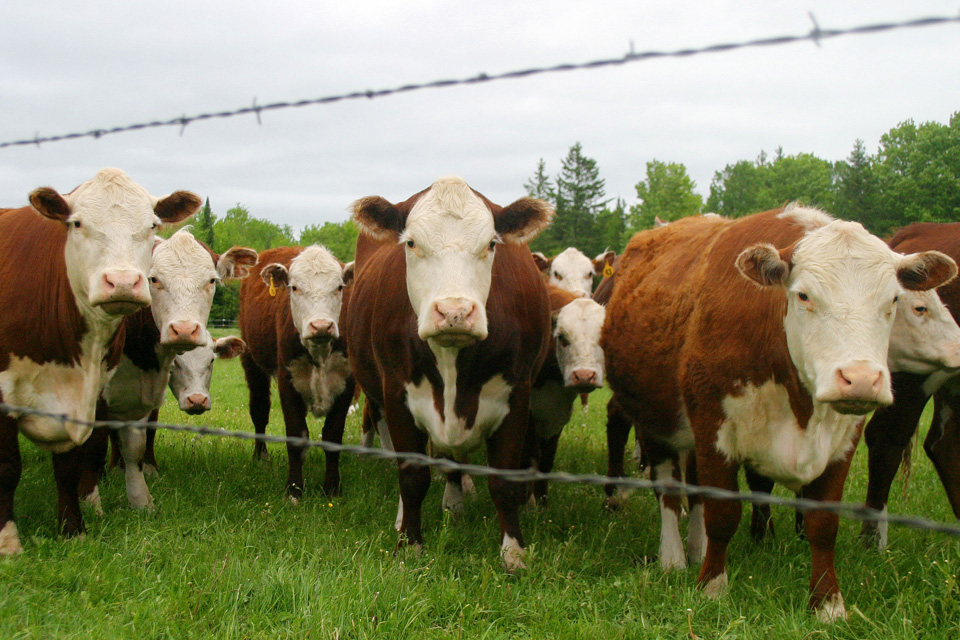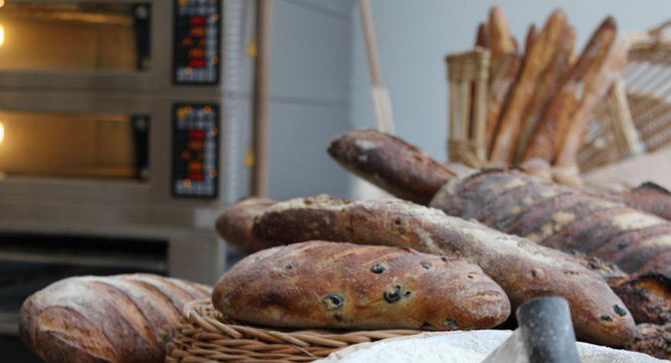The UN Climate Change Conference in Bonn (COP23, 6 – 17 November) is designed to increase climate action and foster sustainable development at all levels of society. The organizers of COP23 are walking the talk –the conference will be made sustainable to the greatest possible extent. In a special series, the UN Climate Change News team is looking at the different aspects of sustainability – including transport, catering, energy and climate neutrality. In this installment of our special series, we look at food.
COP will be attended by around 25,000 participants – and all of them need to eat and drink. This means a lot of meals, and potentially a high carbon footprint just from catering.
In order to make the conference fully climate neutral, the logistical organizers are making the catering both tasty and sustainable.
“We are keen to ensure that catering at the conference is environmentally friendly,” says Michael Schroeren, spokesman for Germany’s Environment Ministry (BMUB). "That is why we chose to offer mainly vegetarian food and only certified fish and organic meat. Our catering concept fits well into the overall strategy of making the conference as sustainable as possible."
When it comes to food, the highest carbon footprint comes from meat. Therefore, eating vegetarian food on a regular basis reduces greenhouse gas emissions and is a key factor in helping to achieve the objectives of the Paris Climate Change Agreement.
According to the UN’s Food and Agriculture Organization (FAO), agriculture and land use account for almost one quarter of global greenhouse gas emissions, making it the second-largest emitter in terms of sectors. Livestock farming contributes more than anything else to the emissions.

The FAO says that global livestock alone –including cattle, swine, sheep and all other animals raised to produce meat, milk, leather or wool - account for 14.5 percent of all man-made greenhouse gas emissions. Almost half of livestock emissions are in the form of methane, while the other half is divided almost equally between the greenhouse gases nitrous dioxide and carbon dioxide.
At COP23, at least 60 percent of the offered food will be vegetarian. Dennis Winkler of UN Climate Change, who leads the COP23 Sustainability Task Force, is pleased with the high percentage.
“At COP21 in Paris two years ago, we had a percentage of thirty percent vegetarian food - we’ll at least double that baseline here," he says.
On the Menu: Mainly Veggie, Certified Organic and Regional Foods
The menu will thus see vegetarian versions of such popular dishes as stuffed pastry called ”Maultaschen“ in German, and a stew known as Gulasch, as well as Chili and Paella.
Organizers are also using the opportunity to raise awareness about the need for more climate-friendly food among COP23-participants, says Dennis Winkler. “There will be visual and textual information on what every individual’s choice means for the climate,” says Winkler. “We want to help people reflect that their choice will have an impact.”
In addition, all meat and seafood that is dished up at COP23 must be organic, with the fish certified by the Marine Stewardship Council, an organization which guarantees high sustainability standards.
Another source of food-related emissions is transport. Because of this, the COP23 organizers require from caterers that at least 20 percent of the food come from Bonn and surroundings.
“That means there will be cabbage dishes on the menu, as well as carrots and beets,” says Beate Frey-Stiltz of Germany’s environment ministry. “Basically everything the region has to offer this time of year.”
Preventing Food Waste Is a Key Element of Sustainability
Preventing food waste is another important way of reducing the environmental impact of COP23 catering. Food waste refers to all the food wasted even though it would have been good enough to eat.

FAO says that globally, 1.3 billion tonnes of food per year are wasted – one third of all the food produced for human consumption.
“If food wastage was a country, it would be the third largest emitter of greenhouse gas emissions,” says UN Climate Change’s Nick Nuttall, “yet everyone can do something about it.”
Nuttall also points to a UN website called Think Eat Save, which helps anyone interested in doing so to reduce their foodprint.
“Food waste is a large contributor to climate change because of the related emissions from agriculture and transport,” says BMUB’s Schroeren. “But much of this can be reduced with careful planning, and that is what we intend to do.”
Caterers can avoid having to throw away food by precisely calculating required quantities and establishing efficient supply chains.
At the same time, caterers will make best possible use of leftovers, for instance by turning left-over fruit and vegetables into smoothies.

And the inevitable amount of left-over food that cannot be saved will be converted into biogas and biofuel.
So when you come to COP23 - you’ll be doing something for your taste buds, the health of the planet - and for your personal health, too!
See more information about COP23 sustainability and how it will be certified by an external environmental verifier here.
